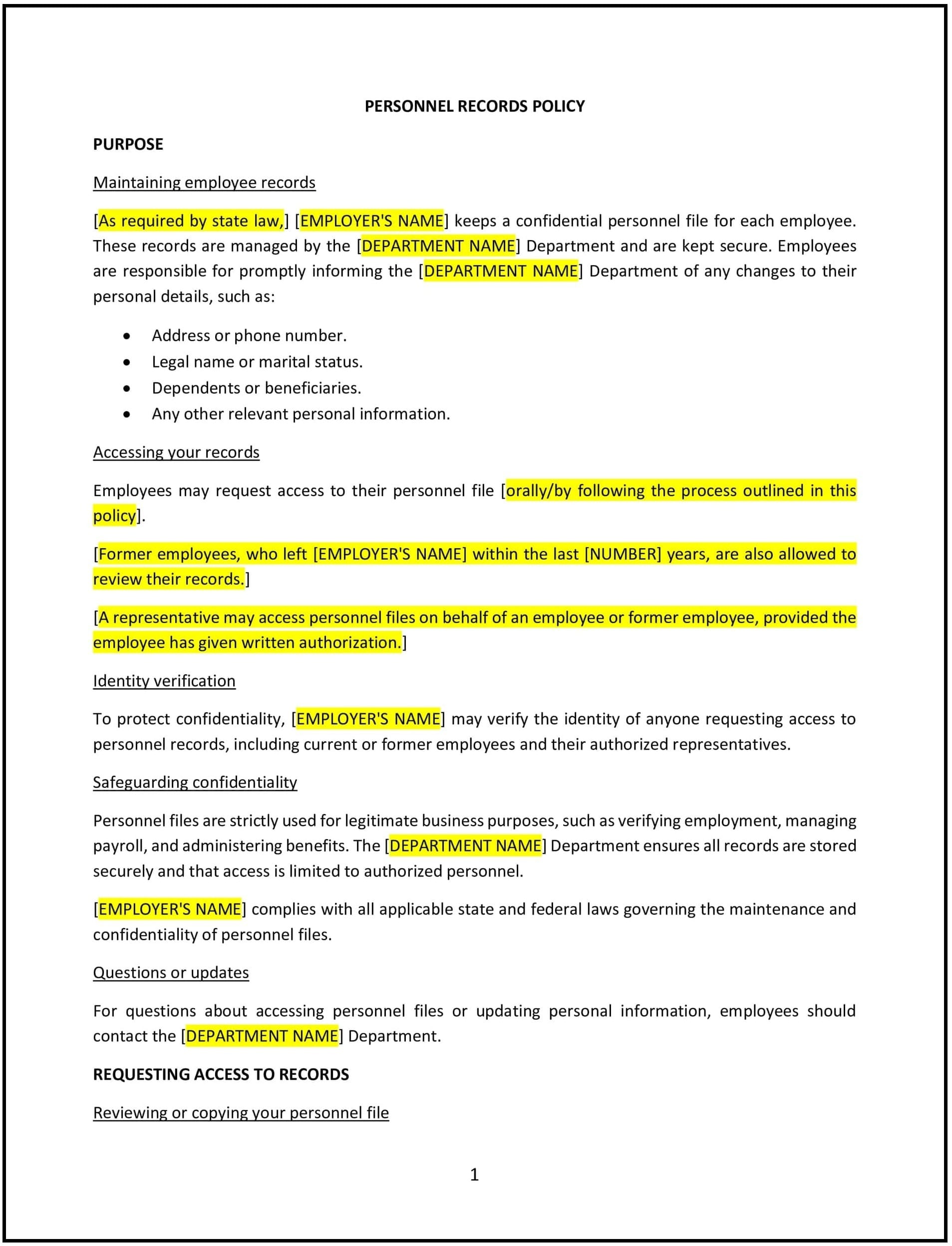Got contracts to review? While you're here for policies, let Cobrief make contract review effortless—start your free review now.

Customize this template for free
Personnel records policy (Wyoming)
In Wyoming, a personnel records policy provides guidelines for maintaining, accessing, and protecting employee records. This policy supports compliance with state and federal laws while fostering transparency and safeguarding sensitive information.
This policy outlines procedures for managing personnel records, ensuring accuracy, confidentiality, and proper access.
How to use this personnel records policy (Wyoming)
- Define personnel records: Clearly specify what constitutes personnel records, such as employment history, performance evaluations, and payroll information.
- Outline access rights: Provide guidelines for who can access personnel records, including employees, HR, and authorized management personnel.
- Establish recordkeeping practices: Detail procedures for creating, updating, and securely storing personnel records to maintain accuracy and confidentiality.
- Include access request procedures: Specify how employees can request access to their records and any associated timelines or requirements.
- Support compliance: Align the policy with Wyoming labor laws and federal regulations, such as the Fair Labor Standards Act (FLSA), to ensure legal adherence.
Benefits of using a personnel records policy (Wyoming)
A personnel records policy provides several advantages for Wyoming businesses:
- Promotes compliance: Aligns with legal requirements for recordkeeping and employee access to information.
- Protects confidentiality: Safeguards sensitive employee data from unauthorized access or misuse.
- Promotes transparency: Establishes clear guidelines for accessing and managing personnel records.
- Improves accuracy: Ensures records are maintained accurately and updated as needed.
- Adapts to local needs: Reflects Wyoming’s unique workforce and regulatory environment.
Tips for using a personnel records policy (Wyoming)
- Train HR staff: Provide training on best practices for managing personnel records, including confidentiality and compliance.
- Maintain secure storage: Use secure physical or digital storage systems to protect sensitive information.
- Audit regularly: Conduct periodic audits to ensure records are accurate, up-to-date, and compliant with legal standards.
- Communicate effectively: Inform employees about their rights to access and review their records as outlined in the policy.
- Review periodically: Update the policy to reflect changes in laws, technology, or organizational practices.